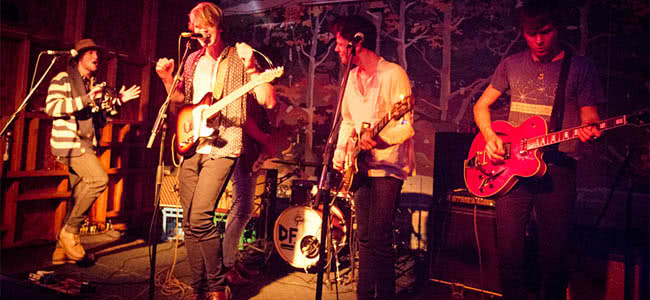By now we’re all aware of what Sydney’s lockout laws have wrought upon the city’s music community and nightlife industry. In an alleged attempt to curb alcohol-fuelled violence, the government opted to kill the city’s music scene.
The basic argument was that live music venues are no different to any other pub or nightspot. They serve alcohol and as a result are just as likely to see violent behaviour as anywhere else, say, the casino, for example.
Dr Anne Fox is a British anthropologist who’s specialised in the study of drinking cultures for the past 20 years. She’s consulted with the British Army, the Home Office, and the Youth Justice Board on the subject of substance misuse.
You could say she’s something of an expert on drinking. In 2013, she conducted extensive field research in Australia and New Zealand, specifically investigating the link between alcohol and anti-social behaviour in “the night-time economy”.
What did she find? Live music is really good at preventing alcohol-fuelled violence. As Music Australia reports, Dr Fox found that “cognitive loading” diminishes the potential for alcohol-related aggression.
In other words, when drinkers are distracted, they’re less likely to go and king hit someone. Such distractions include “listening to live music or stand-up comedy, playing darts, chess or other bar room games, karaoke, competitions and tournaments”.
“We need to encourage the establishment of night-time venues where alcohol is ancillary to the entertainment, not the centre of it.”For example, when a drinker is watching a live music performance, they experience less frustration and even a higher degree of comradery with their fellow punters. Alcohol is no longer the sole focus of their night out.
“While ‘individual responsibility’ remains paramount, it would appear that responsible practice in the service of alcohol should now incorporate aggression-inhibiting cues in the design of drinking environments,” Dr Fox writes.
“What is needed in drinking venues is a de-emphasis on the consumption of alcohol for its own sake and a refocus on the entertainment and group conviviality,” she adds. “We need to encourage the establishment of night-time venues where alcohol is ancillary to the entertainment, not the centre of it.”
[include_post id=”472062″]
If we didn’t know any better, we’d say the doctor is putting forth a scientific argument for establishing more live music venues. You can check out Dr Fox’s full report — ‘Understanding behaviour in the Australian and New Zealand night-time economies’ — right here.
As Tone Deaf reported last month, when research was conducted at Kerri Glassock’s Venue 505, results showed alcohol consumption changed when patrons were watching live music. “People come in and have a drink, and then bar sales drop while the band is performing,” Glassock said.




































